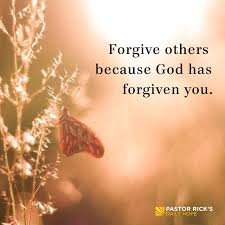Fruitful Living
God’s unchanging word: Hope for all – Part 1

• The word of God
Every year The Bible Society of Ghana chooses a theme for the celebration of BIBLE WEEK. This year’s theme is “God’s Unchanging Word: Hope for All”.
It is our pleasure to bring you scriptures chosen for this year and to draw our attention to how the Word of God gives hope to us when we go through life’s challenges. Please let’s enjoy this article and allow it to impact our daily living and share it with others.
INTRODUCTION
We live in a rapidly changing world. Improved technology has made it possible to access information from various parts of the world with the touch of a button, thereby converting our earth into a global village.
Traditional family values are gradually giving way to debatable modern/ post-modern ones and it is not certain how things will turn out in the near and distant future. In some societies, it is also becoming increasingly difficult to identify who is male and who is female; this is obvious from the LGBTQI+ debate which has assumed popularity in recent times.
In addition, we are still confronted with issues such as the ever-widening gap between the rich and the poor, corruption and mismanagement of resources, wars, escalating gun violence as well as kidnapping which have resulted in the loss of innocent lives and displacement of people from their original places of abode.
Climate changes emerging from natural and man-made disasters have affected animal and plant habitat and thrown our ecosystem out of gear. COVID-19 also continues to resurface in various forms, and this has devastated economies, complicated international travels, divided communities, and brought uncertainties regarding the future.
Other forms of ailment such as monkey pox and Marbug virus have reared their heads and health facilities are overstretched. The Russia-Ukraine war has also affected the smooth supply of essential commodities such as grain, oil and gas, resulting in soaring prices of goods and services and making life uncomfortable for rich as well as poor nations.
Ghana, for instance, has had to approach the IMF for a bail-out. In the face of these challenges, hope for a better future seems to be dwindling and questions are being raised concerning the purpose of human existence.
Fortunately, the Bible offers us hope in a renewed universe in which God promises through His unchanging Word to make all things new. It shows us ways of experiencing positively transformed lives that can contribute to improving our economic, social and political fortunes and bring us hope even as we serve an unchanging and faithful God whose unchanging Word directs us to things that are of lasting value.
When we study, teach and obey God’s Word, we become channels of hope for groups and individuals who find themselves in situations of hopelessness and uncertainty. God’s will is thereby done on earth as it is in heaven.
1. In the beginning, God’s unchanging Word brought life and order into a lifeless and chaotic creation.
In the beginning God created the heavens and the earth. Now the earth was formless and empty, darkness was over the surface of the deep, and the Spirit of God was hovering over the waters. And God said, “Let there be light,” and there was light. – Genesis 1:1-3.
2. What God has said in His Word will abide for ever because God Himself is Unchanging, Eternal and Truthful.
Your word, Lord, is eternal; it stands firm in the heavens. Your faithfulness continues through all generations; you established the earth, and it endures. – Psalm 119:89-90
A voice says, “Cry out.” And I said, “What shall I cry?” “All people are like grass, and all their faithfulness is like the flowers of the field. The grass withers and the flowers fall, because the breath of the Lord blows on them. Surely the people are grass. The grass withers and the flowers fall, but the word of our God endures forever.” – Isaiah 40:6-8.
Heaven and earth will pass away, but my words will never pass away. – Mark 13:31.
3. We must exercise faith in God whose word assures us that we hope for in terms of positively transformed circumstances, will surely come to pass.
Now faith is confidence in what we hope for and assurance about what we do not see. This is what the ancients were commended for. By faith we understand that the universe was formed at God’s command, so that what is seen was not made out of what was visible. – Hebrews 11:1-3
4. God’s unchanging word brings hope and vitality into hopelessness and lifeless situations.
The hand of the Lord was on me, and he brought me out by the Spirit of the Lord and set me in the middle of a valley; it was full of bones. He led me back and forth among them, and I saw a great many bones on the floor of the valley, bones that were very dry. He asked me, “Son of man, can these bones live?”
I said, “Sovereign Lord, you alone know.”
Then he said to me, “Prophesy to these bones and say to them, ‘Dry bones, hear the word of the Lord! This is what the Sovereign Lord says to these bones: I will make breath[a] enter you, and you will come to life. I will attach tendons to you and make flesh come upon you and cover you with skin; I will put breath in you, and you will come to life. Then you will know that I am the Lord.’” – Ezekiel 37:1-6
Therefore, the promise comes by faith, so that it may be by grace and may be guaranteed to all Abraham’s offspring—not only to those who are of the law but also to those who have the faith of Abraham. He is the father of us all. As it is written: “I have made you a father of many nations.” He is our father in the sight of God, in whom he believed—the God who gives life to the dead and calls into being things that were not.
Against all hope, Abraham in hope believed and so became the father of many nations, just as it had been said to him, “So shall your offspring be.” – Romans 4:16-18.
5. Obedience to God’s word changes the fortunes of individuals and communities for the better:
• Humankind (through Noah and family) – Genesis 6
• Nations (through Abram) – Genesis 12:1-3
• Families (through Joseph) – Genesis 46-50
To be continued!
Stay blessed!
For further inquiries please contact us on Tel Nos. 0243588467 or 0268130615
Email: saltnlightministries@ gmail.com
Website: saltandlightministriesgh.org
By Dr. Joyce Aryee, the author
Fruitful Living
Islam and the environment (Part 1)
We praise and glorify Allah, the Creator and Sustainer of the universe. We send salutations upon the best of creation, Prophet Muhammad (peace and blessings be upon him), the final Messenger of Allah, who taught us to live in balance, justice, and compassion with all creatures of the earth.
Introduction
The preservation of the environment is not merely a contemporary global concern; it is deeply
rooted in divine revelation.
In Islam, the environment is a manifestation of Allah’s signs (Ayatullah) and a trust (Amaanah) given to humanity. Unfortunately, modern civilisation, driven by profit, exploitation, and ignorance, has led to climate change, deforestation, water pollution, biodiversity loss, and global warming.
Islam’s holistic worldview offers timeless ethical principles that advocate environmental protection, making it highly compatible with international frameworks like the United Nations Sustainable Development Goals (SDGs).
As Muslims, safeguarding the earth is both a spiritual duty and a social responsibility.
Definition of Environment and the Islamic Perspective
The environment is broadly defined as the surroundings or conditions in which a person, animal, or plant lives or operates.
The Cambridge Dictionary defines it as “the air, water, and land in or on which people, animals, and plants live.”
In academic terms, it includes all external physical, biological, and chemical factors influencing living organisms (Miller & Spoolman, 2011).
From an Islamic standpoint, the environment is the creation of Allah entrusted to humanity to use with responsibility and moderation.
Allah says: “And do not cause corruption on the earth after it has been set in order, and invoke Him in fear and aspiration. Surely, the mercy of Allah is near to the doers of good.”
(Surah Al-A’raf, 7:56)
This verse explicitly commands humans not to destroy the balance (mīzān) that Allah has
established.
The Prophet Muhammad (peace be upon him) further reinforced environmental
ethics through his actions and sayings, encouraging tree planting, animal welfare, cleanliness,
and the preservation of water sources.
Components of the Environment in Islam
The environment encompasses various ecosystems and natural elements, including:
• Dry and fertile lands – used for agriculture and housing.
• Forests – sources of oxygen, biodiversity, and medicine.
• Water bodies – such as rivers, lakes, lagoons, seas, and oceans, essential for life.
• Ramsar Sites and World Heritage Areas – designated for ecological protection due to
their unique natural value.
Islam values every element of nature. For instance, the Prophet (peace be upon him) said:
“If a Muslim plants a tree or sows seeds, and then a bird, or a person, or an animal eats from it, it is regarded as charity.” (Sahih al-Bukhari, Hadith 2320)
By Imam Saeed Abdulai
Fruitful Living
Why Should I forgive others? (Part 1)

“Be kind and compassionate to one another, forgiving each other, just as in Christ God forgave you.”- Ephesians 4:32 (NIV)
INTRODUCTION
CONFLICT is never easy—especially when it happens within the church. Many believers can relate to the heartache of strained relationships, misunderstandings, or even church splits.
Though these moments don’t make us lose our salvation, they often test our faith deeply. At times, the discouragement can feel so intense that quitting the Christian walk seems like a tempting option.
Yet, in Christ, we are called into a new kind of family—a family transformed by grace. We are to be peacemakers, reconcilers, and forgivers because we ourselves have been forgiven so completely.
Scripture doesn’t just call us to live in peace; it calls us to reflect the heart of Christ, the One who gave Himself for His enemies. The brief but powerful letter to Philemon offers timeless wisdom on this topic.
Living in grace
The Apostle Paul’s letter to Philemon is only 335 words in the original Greek, yet it carries profound lessons about grace, forgiveness, and reconciliation.
Paul writes not as an authoritarian apostle but as a loving brother in Christ, appealing to Philemon on behalf of Onesimus—a runaway slave who had since become a believer.
Paul gently urges, “Though I could be bold enough in Christ to command you to do what is proper, yet for love’s sake I prefer to appeal to you…” (Philemon 1:8–9). He pleads with love, not law. He even offers to pay any debt Onesimus owes: “If he has wronged you or owes you anything, charge that to my account” (v. 18).
This is not “forgive and forget.” This is a real reckoning of wrong, met with real grace. Paul illustrates what Christ has done for all of us—He takes our debt and pays it with His own life.
Our identity in Christ
Paul emphasises that Onesimus has undergone a radical transformation. Once “useless,” he is now “useful” (v. 11)—a beautiful play on the meaning of his name. The point? In Christ, our identity is changed. We’re not defined by our failures or past offenses. We are made new.
Philemon, a slave master, is being asked to receive Onesimus not as property, but as a brother in Christ. This is a powerful call to the Church: we must see each other through the lens of our shared redemption. Grace transforms social structures, erases labels, and redefines our relationships.
By Rev. Dr Joyce Aryee,
the author






